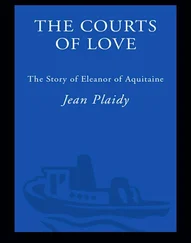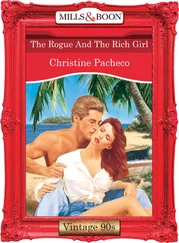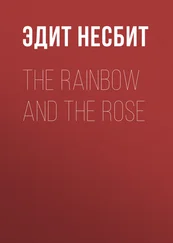Виктория Холт - The Thistle and the Rose
Здесь есть возможность читать онлайн «Виктория Холт - The Thistle and the Rose» весь текст электронной книги совершенно бесплатно (целиком полную версию без сокращений). В некоторых случаях можно слушать аудио, скачать через торрент в формате fb2 и присутствует краткое содержание. Жанр: Исторические любовные романы, на английском языке. Описание произведения, (предисловие) а так же отзывы посетителей доступны на портале библиотеки ЛибКат.
- Название:The Thistle and the Rose
- Автор:
- Жанр:
- Год:неизвестен
- ISBN:нет данных
- Рейтинг книги:4 / 5. Голосов: 1
-
Избранное:Добавить в избранное
- Отзывы:
-
Ваша оценка:
- 80
- 1
- 2
- 3
- 4
- 5
The Thistle and the Rose: краткое содержание, описание и аннотация
Предлагаем к чтению аннотацию, описание, краткое содержание или предисловие (зависит от того, что написал сам автор книги «The Thistle and the Rose»). Если вы не нашли необходимую информацию о книге — напишите в комментариях, мы постараемся отыскать её.
The Thistle and the Rose — читать онлайн бесплатно полную книгу (весь текст) целиком
Ниже представлен текст книги, разбитый по страницам. Система сохранения места последней прочитанной страницы, позволяет с удобством читать онлайн бесплатно книгу «The Thistle and the Rose», без необходимости каждый раз заново искать на чём Вы остановились. Поставьте закладку, и сможете в любой момент перейти на страницу, на которой закончили чтение.
Интервал:
Закладка:
Jean Plaidy
The Thistle and the Rose
The Betrothal
In an apartment of that royal palace which recently, by the command of the King, had had its name changed from Shene to Richmond, three children were ranged about a blazing fire. Outside the January wind buffeted the octagonal and circular towers, threatening to sweep away the little chimneys which looked like inverted pears.
The eldest of the three — a girl just past her twelfth birthday — had taken off the net which held her beautiful reddish golden hair, so that she could have the joy of letting it fall over her shoulders and down to her waist. The boy, who had the same rosy complexion and bright gold hair, watched her sullenly. She was delighted with herself; he was displeased. As for the other child, a little girl not quite six, she was intent on watching the pair of them, very conscious of the fact that on account of her age she was of small account in the eyes of her twelve-year-old sister, Margaret, and ten-year-old brother, Henry.
“The fact is,” Margaret was saying, “that you are angry because I am to have a marriage and because I shall be a queen before you are a king.”
“Queen of Scotland!” sneered Henry. “That barbarous land! Nay, my sister, I tell you this: I am displeased because it seems to me unfitting that my sister should so demean herself by such a marriage.”
Margaret burst out laughing. “What airs you give yourself, Henry. I declare that since you became Prince of Wales you believe you are a king already. And think of this, brother: Had our dear Arthur lived you would never have been a king at all.”
Henry scowled. It was like Margaret to take an unfair advantage. She was telling him that he showed too much pleasure in his new state and not enough sorrow for the death of their brother.
“It matters not how or why a man wears a crown,” he muttered. “It only matters that he does.”
“So you are glad Arthur is dead!”
“I did not say that.”
“You imply it.”
“You lie.”
“I do not lie.”
Mary began to whimper. She hated quarrels between her brother and sister; they were always threatening to arise, partly because Margaret and Henry were so much alike. If Margaret’s hair were cut off — which she would never allow because it was her greatest beauty and she was very proud of it — and she were dressed like a boy, there would be Henry all over again. And it was not only in appearance that they resembled each other. They were both headstrong, willful, loving to indulge themselves, furious with any who opposed them. Mary secretly took Henry’s side because he made much of her. He often told her how pretty she was and that she was his favorite sister.
“Now you see what you have done,” complained Henry. “You have frightened Mary. Come here, Mary. I will sing to you if you like. I will play my lute.”
“Oh yes, please.”
Margaret regarded them scornfully.
“And you must say none sings like he does, none plays the lute to compare with him, and you are the luckiest girl in the world to have such a brother. That is the payment which will be asked of you for his attentions, little sister.”
“Heed her not,” Henry reassured the little girl. “She is angry with us because she has to leave our beautiful Court for that of a barbarian.”
Margaret lost a little of her bravado. She had her qualms. It could be an ordeal at twelve, when you had not a great experience of the world, to be called upon to leave your home for that of a husband you had never seen.
Henry saw the change in her demeanour and made the most of his advantage.
“I never cared for Scottish alliances.” He imitated the tone of one of his father’s ministers and stood ponderously, long legs apart, hands clasped behind his back, an expression of wisdom on his round, rosy face.
“I wonder you do not discuss this matter with the King,” Margaret put in sarcastically.
“I might do so.” Henry was playing for Mary; it was possible that she would not find it difficult to imagine her wonderful brother already advising the King.
“Go and seek an audience at once,” Margaret suggested. “I am sure our father will be eager to listen to your counsel.”
Henry ignored his sister; he began to pace up and down before the fire. “In the first place,” he said, “I like not these Stuarts. I like not their lax morals. You will be going to a man who has had a host of mistresses and, some say, married one of them. A pleasant state of affairs, madam, for a Tudor!”
Margaret folded her arms across her breasts and laughed gaily. She was aware of mingling apprehension and excitement; she had become conscious of her body at an early age; her governess and nurse said of her: “She should marry young.” It was different for Henry, who was as eager for manhood as she was for womanhood; they were lusty people, these young Tudors. They must have inherited that quality from their maternal grandfather; they had often discussed gossip they had heard about him. Great Edward IV — handsome, tall, golden and very like them in appearance — whose greatest pleasure had been the pursuit of women. His daughter, their mother, was mild and docile; their father lusted after gold and possessions so exclusively that he had no lust left for anything else. So, thought Margaret, Henry has undoubtedly inherited his tastes from his grandfather. Have I? She believed so; and that was fortunate, for it meant that in spite of certain natural fears she could look forward with excitement to marriage with a man noted for his sensuality.
It was amusing to see Henry in this mood. His little mouth was prim; because he liked to be the center of attention, and since, as this was her marriage which was about to take place, she must necessarily be, he was going to show his displeasure by disapproving of the morals of her bridegroom.
“He will have to give up his mistresses when I arrive,” said Margaret.
“If he would not do so while negotiating with our father for the marriage, depend upon it he will not when he has achieved his purpose: alliance with the Tudors.”
Henry said the last sentence as though he were making an announcement like a herald at a tournament. He had become very insistent on the homage due to the Tudors since he had become the heir to the throne.
Of course, Margaret thought, that had changed everything. He was surrounded by sycophants, all eager to be friends with the boy who would one day be King; and Henry did not appear to see what their flattery meant — but perhaps he did though, and loved it so much that he would accept it eagerly no matter what lay behind it.
Little Mary was watching him with adoring eyes. It was easy enough to be a hero in the eyes of a five-year-old little girl.
“Our grandfather had many mistresses, and he was a great King,” Margaret reminded Henry.
“But these Stuarts! Even their castles are drafty.”
Margaret shivered. “So are ours.”
“And the winters are hard, north of the Border.”
“I shall know how to keep myself warm.”
“And” — Henry narrowed his eyes and his mouth grew tight — “I remember — though others do not — that your bridegroom has been overfriendly with a certain traitor.”
“A traitor!” squealed Mary. “Oh, Henry, what traitor?”
“You are too young to remember, but two years ago Perkin Warbeck was a prisoner in our Tower of London, and there he was tried and found guilty; after which he was taken to Tyburn and hanged by the neck until he died. Do you know what this traitor planned to do? To pass himself off as the Duke of York, our mother’s brother, thereby claiming that he had more right to the throne than our father. Vile traitor that he was. And this James, whom your sister is so proud to marry, received him in Scotland, gave him honors and allowed him to marry his own cousin. There! Do you understand now why I see no matter for rejoicing in this marriage of our sister?”
Читать дальшеИнтервал:
Закладка:
Похожие книги на «The Thistle and the Rose»
Представляем Вашему вниманию похожие книги на «The Thistle and the Rose» списком для выбора. Мы отобрали схожую по названию и смыслу литературу в надежде предоставить читателям больше вариантов отыскать новые, интересные, ещё непрочитанные произведения.
Обсуждение, отзывы о книге «The Thistle and the Rose» и просто собственные мнения читателей. Оставьте ваши комментарии, напишите, что Вы думаете о произведении, его смысле или главных героях. Укажите что конкретно понравилось, а что нет, и почему Вы так считаете.










